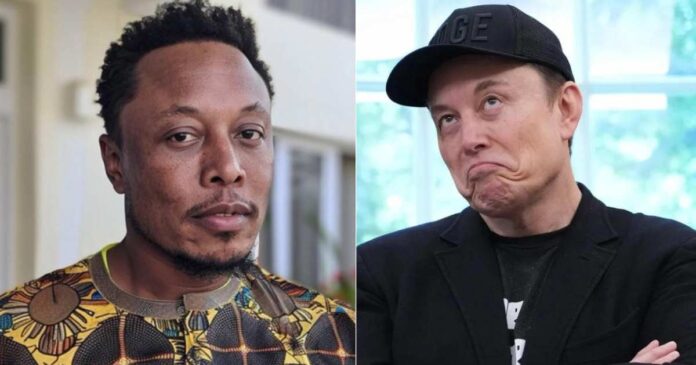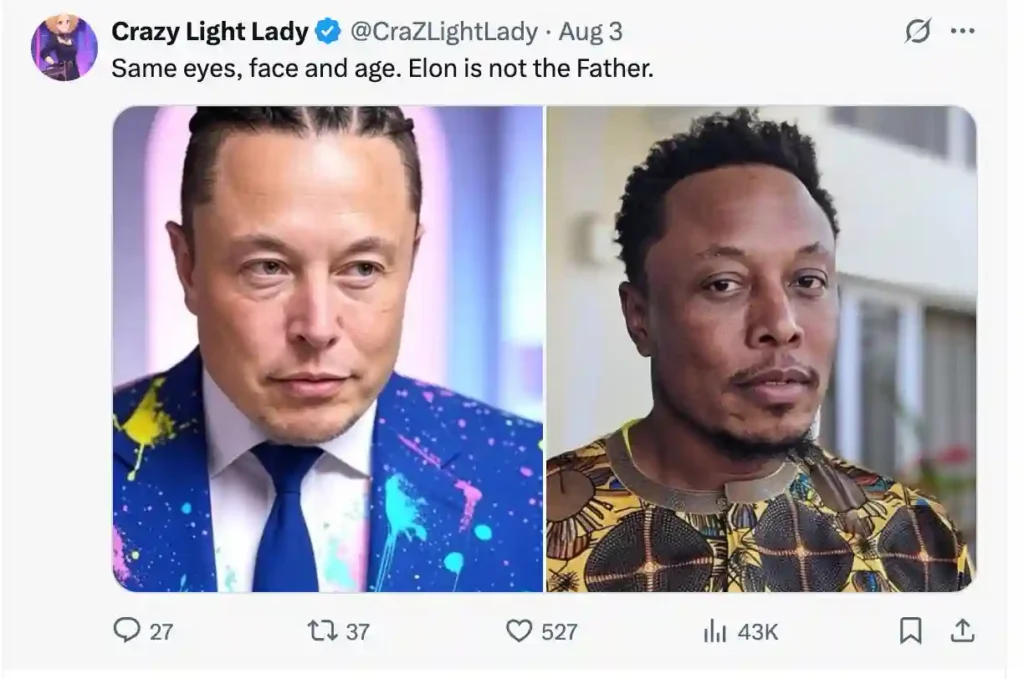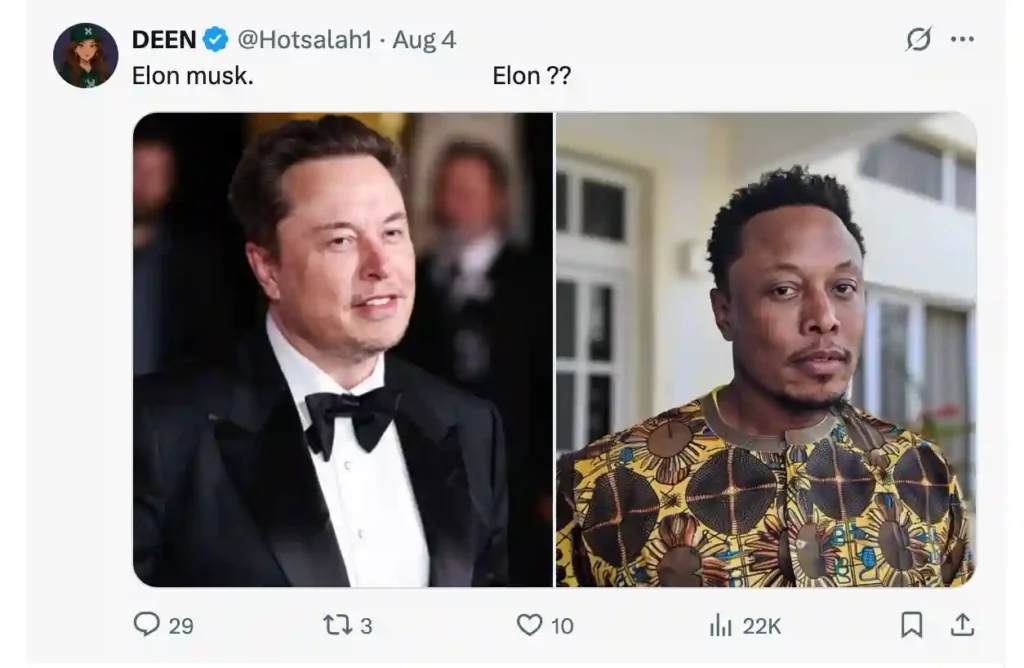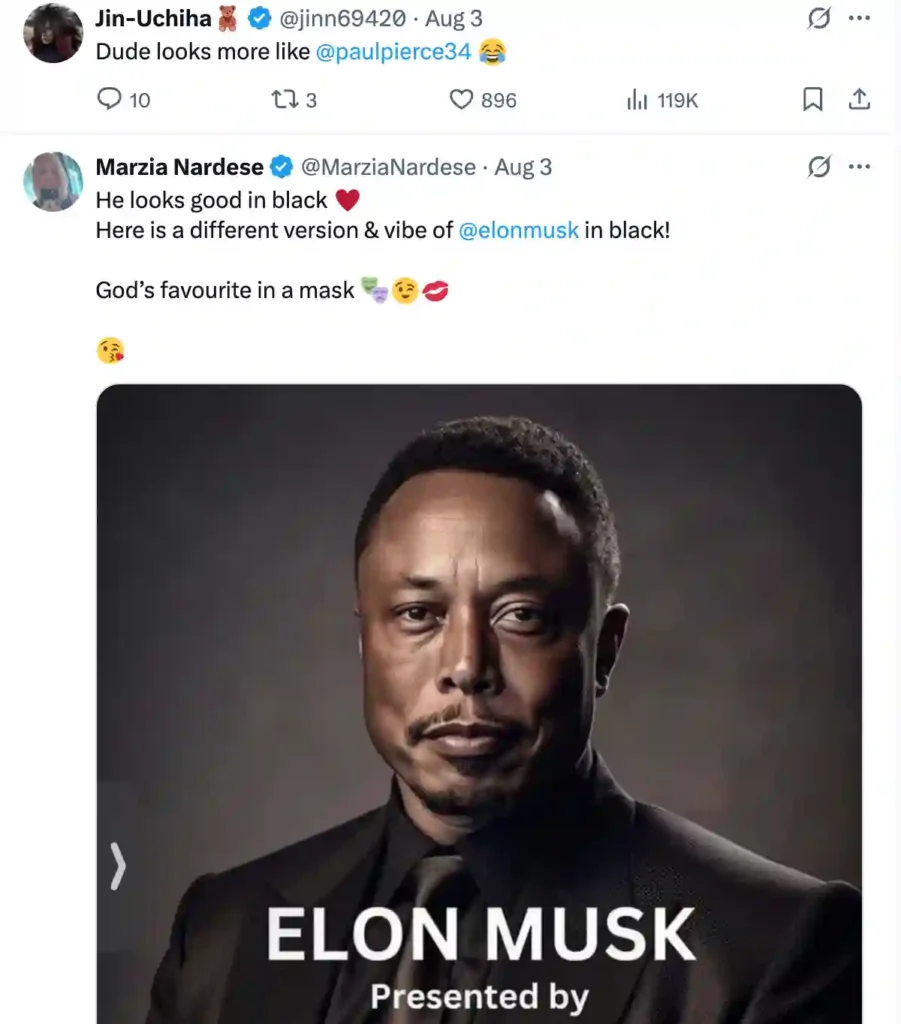
After claiming to be the long-lost firstborn son of billionaire Elon Musk, a 40-year-old Kenyan man went popular on the internet. The man claims he wants a DNA test to confirm his connection to the tech tycoon, but he merely describes himself as a “mental health activist” who looks strikingly like Musk. He claims that while working at a guesthouse in Kenya’s Masai Mara in the early 1990s, his mother allegedly met a 20-year-old Musk.
Elon Musk’s Kenyan son? Viral image raises eyebrows.
Although many were initially taken aback by the man’s allegation, their astonishment soon gave way to doubt. The news initially surfaced on the social media platform African Hub, but it lacked important information such as the man’s identity, present location, or even a second photo. Users were alarmed by this lack of transparency and started dissecting the narrative almost immediately. The caption for the photo said, “Kenyan man claims he is Elon Musk’s son.” The article has had 9.7 million views, 55k likes, 4.7k retweets, and 3.3k comments since it was shared on X on August 3.
The maths doesn’t add up

The chronology was among the first warning signs that internet users pointed out. Musk would have been just 14 years old at the time of the man’s birth, not 20, as stated, if the man is 40 and Musk is currently 54. “Elon isn’t 60; he’s like 53 or 54,” a user wrote, calling the math “impossible.” The age difference soon became a major source of conflict. Furthermore, the individual could not be forty years old if he was born in the 1990s. The man would be 35 in 2025 if he were born in 1990.


The intrigue is heightened by anonymity.
The man’s anonymity was the second significant problem. He has no name, no records that can be verified, and no other pictures to prove who he is. When followers pressed for clarification, even Pie Radio UK, one of the accounts that shared the story, acknowledged that they hadn’t adequately fact-checked it.
Concerns about the role of AI:
The picture itself is the third and most important issue. Numerous internet users started speculating that the image was artificial intelligence (AI) created rather than real. They mentioned the man’s abnormal features, background blurring, and odd details in his shirt. One commenter said what many others feel: “If this is not AI, let him drop another picture.”
Repurposed image from previous trends:
Then, internet detectives found that the exact image and headline had really appeared months earlier, in March 2024, on Russian websites. As no fresh images or information regarding the alleged “Kenyan Musk” have surfaced since, there is broad consensus that the picture may have been inspired by a 2023 social media fad. AI was being used to produce “Black versions” of well-known white celebrities as part of that trend.
The emergence of fraudulent content produced by AI and the Echoes of Dead Internet theory:
The episode has rekindled discussions about the increasing deluge of AI-generated content, even outside of this particular instance. The ability to create AI characters that behave like human users is one of the AI capabilities that Meta recently announced it is offering for Facebook and Instagram. The strange viral allegation has also brought attention to the “Dead Internet Theory,” which holds that more and more content on the internet is produced, shared, and accessed by bots. According to the notion, loops of automated fakery may eventually overpower real human interaction on the internet. What started out as a ridiculous assertion from an unnamed individual may actually be a sign of something more sinister.
